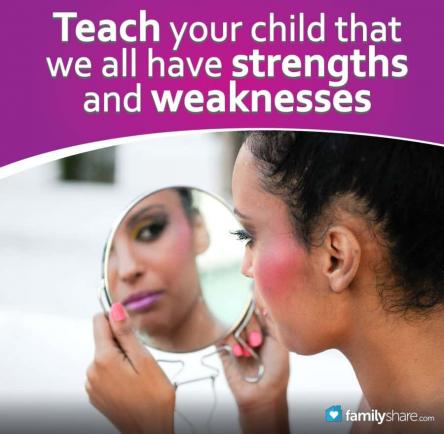
As a parent, we all want our children to feel loved and accepted by others. Sometimes, outside influences, such as bullying at school, or an unexpected family event, like the death of a loved one, can negatively affect the way our children view themselves.
A child's self-esteem has a significant impact on everything he does - the way he interacts with others, performs in school, and deals with challenges. A child with a low self-esteem will often speak negatively about himself. "I'm so stupid,"� "I can't do that,"� I'm not good at anything."� They may give up easily or tend to be overly critical. They may become passive and not want to interact with others.
If you see any of these signs in your children, your child probably has a low self-image. Here are some things you can do to help build your child's confidence.
Praise your child for good behavior
When they are doing well, tell them. Take the time to notice. You notice bad behavior, so why not the good?
Say "I love you"� every day and back it up with actions
Children need to feel loved, especially during rough times. Remember that it is the child's behavior you don't like, not them.
Listen and observe
Make time to listen to your child and pay attention to non-verbal communication (body language). Sometimes it will tell you the truth about how your child really feels.
Teach your child to think positively
To do this, leave notes around the house with encouraging words or slip a note saying, "I love you"� into their backpack or lunch bag.
Place a picture of your family next to the child's bed
This will remind them every day that they are not alone. They have support and love from people that care about them.
Set goals
Help your child set short-term goals such as, reading by themselves, trying out for a team, completing a project, whatever you think would be a challenge to them, no matter how small. When they accomplish it, reward them through praise.
Show them the "positives" in every situation, even the bad ones
Bad experiences are good opportunities to teach our children how we can learn and grow from everything we do in life.
Show empathy
If your child compares himself negatively to his siblings or friends ("John is a faster runner than I am"�). Show them empathy by understanding their emotions and feelings, then show them one of their strengths. For example, say, "John can run fast, but you draw beautiful pictures."� This teaches your child that we all have strengths and weakness, and that's OK.
Teach your child service
A couple of times a week, help your child find ways to do something nice for someone else. Whether it's a kind word to a friend, or raking a neighbor's leaves, service of any kind builds strong character and produces positive feelings.
Help children with learning disabilities understand their situation
Knowledge is power. Give your child information about their disability instead of sheltering them. This will help your child feel like they are in control of their situation and that things can be done to help them, whether it's outside resources or even a support group.

